May 25, 2025 | 12:40 GMT +7
May 25, 2025 | 12:40 GMT +7
Hotline: 0913.378.918
May 25, 2025 | 12:40 GMT +7
Hotline: 0913.378.918
While the current selling price is low, the production cost is high, the epidemic has not been fully controlled, Nguyen Van Tuan in Tan Hiep commune, Hon Quan district (Binh Phuoc) tried different forms of family economic development, but the effect has not been as expected. After many trials and errors, he decided to "shake hands" with enterprises to deploy a closed, bio-secure, processed pig farming model.
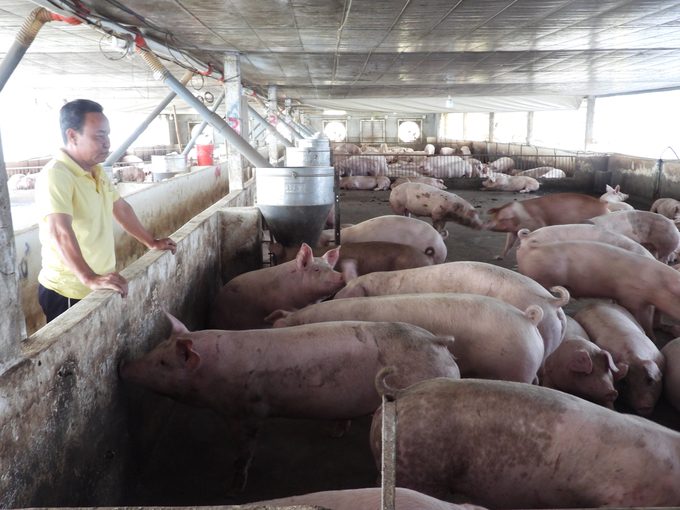
Nguyen Van Tuan's pig farm in Tan Hiep commune, Hon Quan district. Photo: Tran Trung.
Following the staff of Binh Phuoc Department of Livestock Production and Animal Health to visit Tuan's farm of 1,400 commercial pigs, we felt like we were lost in the "matrix" of fly nets within a dense monitoring and disinfection system.
In order to enter the pigsty, we had to follow 4 procedures correctly: bathing, disinfecting ourselves and our equipment, going through the infrared system, and walking through a corridor of more than 100 meters flooded with clear lime water. It was a bit arduous, but seeing farmers have a high awareness of disease prevention for their animals, we felt quite comfortable.
Inside the farm lied a closed cold cage system divided into 3 areas: the food processing area, the pig raising area and the biogas cellar complex to treat manure and wastewater. This was a modern, fully equipped farm with a water cooling system, exhaust fan, automatic feeding and drinking trough, automatic temperature adjustment system inside.
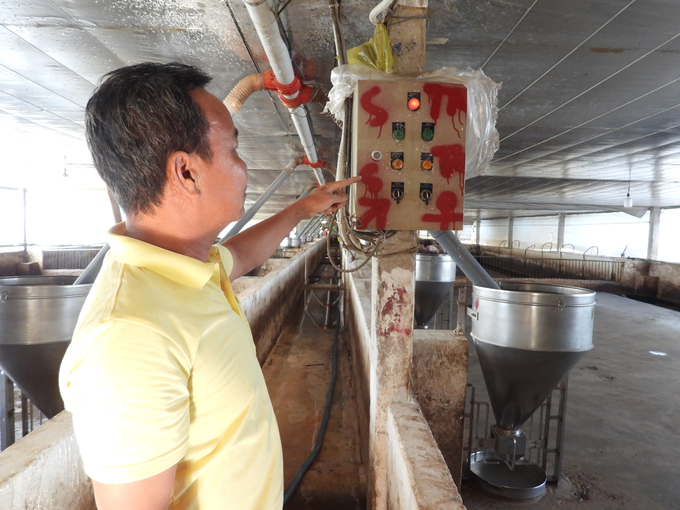
The cold cage pig raising procedure is industrial and automatic. Photo: Le Binh.
Turning on the cooling system for the pigs, Tuan said that if farmers want to develop sustainable livestock, besides investing in farms in the direction of cold and industrial farms, they need to associate with businesses. Since his family was linked with CJ Vina Agri Co., Ltd., the output was guaranteed and the disease was controlled. Raising livestock almost possessed zero risk.
“Considering the current trend, I think farmers should cooperate with companies because they have science and technology that can help me gain knowledge and protect my inputs and outputs. If we do small-scale farming, we would have to depend on the market, but the market now is precarious, prone to price pressure or many other problems," said Tuan.
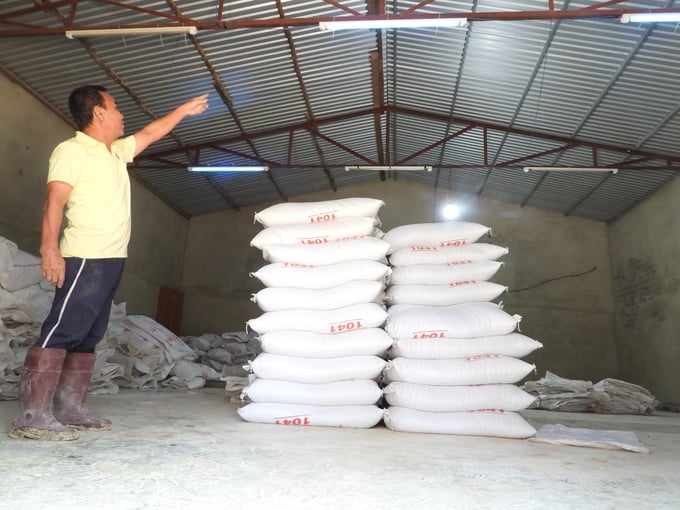
Food is irradiated with infrared rays, reducing the risk of disease from outside environment. Photo: Tran Trung.
Apart from companies’ requirements and regulations such as having a disinfecting house, washing room, disinfecting toilet, Tuan also understood that he has to actively make a fly net system, spray disinfectant daily. Compared to a normal farmer's income, an annual profit of VND 500 - 700 million like Mr. Tuan is already considered a big success.
According to Binh Phuoc Department of Agriculture and Rural Development, in recent years, the situation of livestock raising in the province has developed rapidly. The total herd of pigs reaches roughly 1.7 million heads, mainly concentrated breeding in 390 farms, with 256 of them being closed cold farms. The province has 123 pig breeding facilities free from classical swine fever and 77 facilities free from African swine fever.
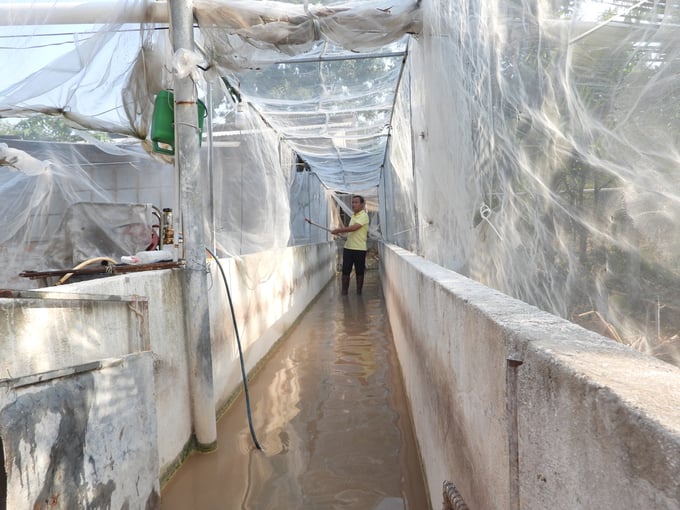
Households producing livestock are proactive in disease safety measures. Photo: Tran Trung.
For the livestock industry to grow green and sustainably, the People's Committee of Binh Phuoc province has recently issued a plan to implement “The 2021 - 2030 livestock development strategy -vision to 2045”.
Accordingly, the total pig herd in Binh Phuoc province will reach 2.7 million heads by 2025. As for the construction of disease-free livestock production areas, at least 7 district-level breeding areas will be built, and by 2030 the number will increase to at least 10, complete the construction of at least 2 factories for slaughtering and processing and have the processed products exported to the world market.
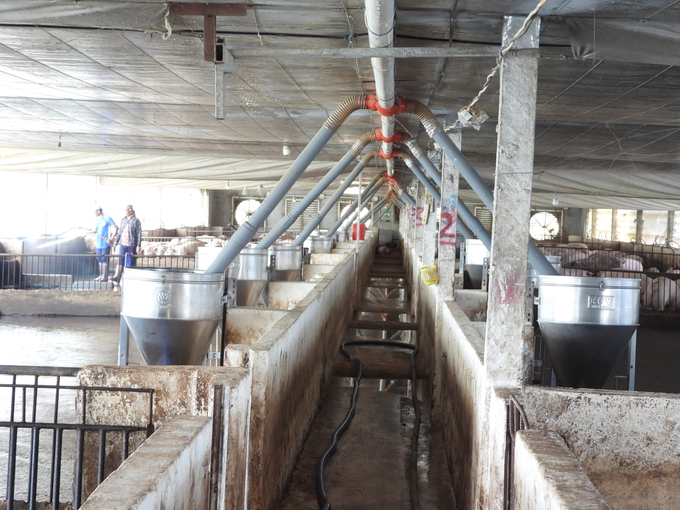
Binh Phuoc strives to build at least 7 disease-free breeding areas at the district level by 2025, and at least 10 by 2030. Photo: Le Binh.
Regarding the vision for 2045, the level and production capacity of the province's livestock industry will stand among the advanced group of southern provinces and the whole country. 100% of livestock and poultry meat products will be supplied from concentrated and industrial slaughterhouses and over 70% of the volume of main livestock products will be preliminarily processed and industrially processed, of which 30% will be deeply processed.
“Binh Phuoc aims to become an advanced and modern center for breeding and exporting livestock products of the whole country and Southeast Asia. This plan will help the province promote the potential and advantages of localities to develop comprehensive, effective and sustainable livestock production associated with the value chains,” said Nguyen Thuy Luan, Director of Binh Phuoc Department of Agriculture and Rural Development.
Translated by Samuel Pham

(VAN) The People's Committee of Tra Vinh province has approved an adjustment to the investment policy for the Green Hydrogen Plant project, increasing its area to approximately 52.76 hectares.
![Reducing emissions from rice fields: [2] Farmers’ commitment to the soil](https://t.ex-cdn.com/nongnghiepmoitruong.vn/608w/files/news/2025/05/05/dsc08881jpg-nongnghiep-140632.jpg)
(VAN) Clean rice cultivation model in Thuong Tan commune, Bac Tan Uyen district, is assisting local residents in achieving sustainable agriculture by substantially reducing costs, increasing productivity, and protecting the environment.

(VAN) At the conference to disseminate Resolution No. 68, AgriS introduced its digital agricultural ecosystem and reaffirmed its commitment to accompanying the Government in promoting private sector development and sustainable agriculture.

(VAN) 'Blue Ocean - Blue Foods' initiative is designed to restore marine ecosystems and establish sustainable livelihoods for local communities by cultivating a minimum of 1,000 hectares of cottonii seaweed in the first three years.
/2025/05/21/4642-3-112707_603.jpg)
(VAN) The V-SCOPE project has made direct contributions to three out of six pillars of the Comprehensive Strategic Partnership between Vietnam and Australia.

(VAN) Facing the threat of rabies spreading to the community, Gia Lai province urgently carries out measures to vaccinate dogs and cats on a large scale.

(VAN) Disease-free livestock farming not only protects livestock herds but also stabilizes production and livelihoods for many farmers in Tuyen Quang.